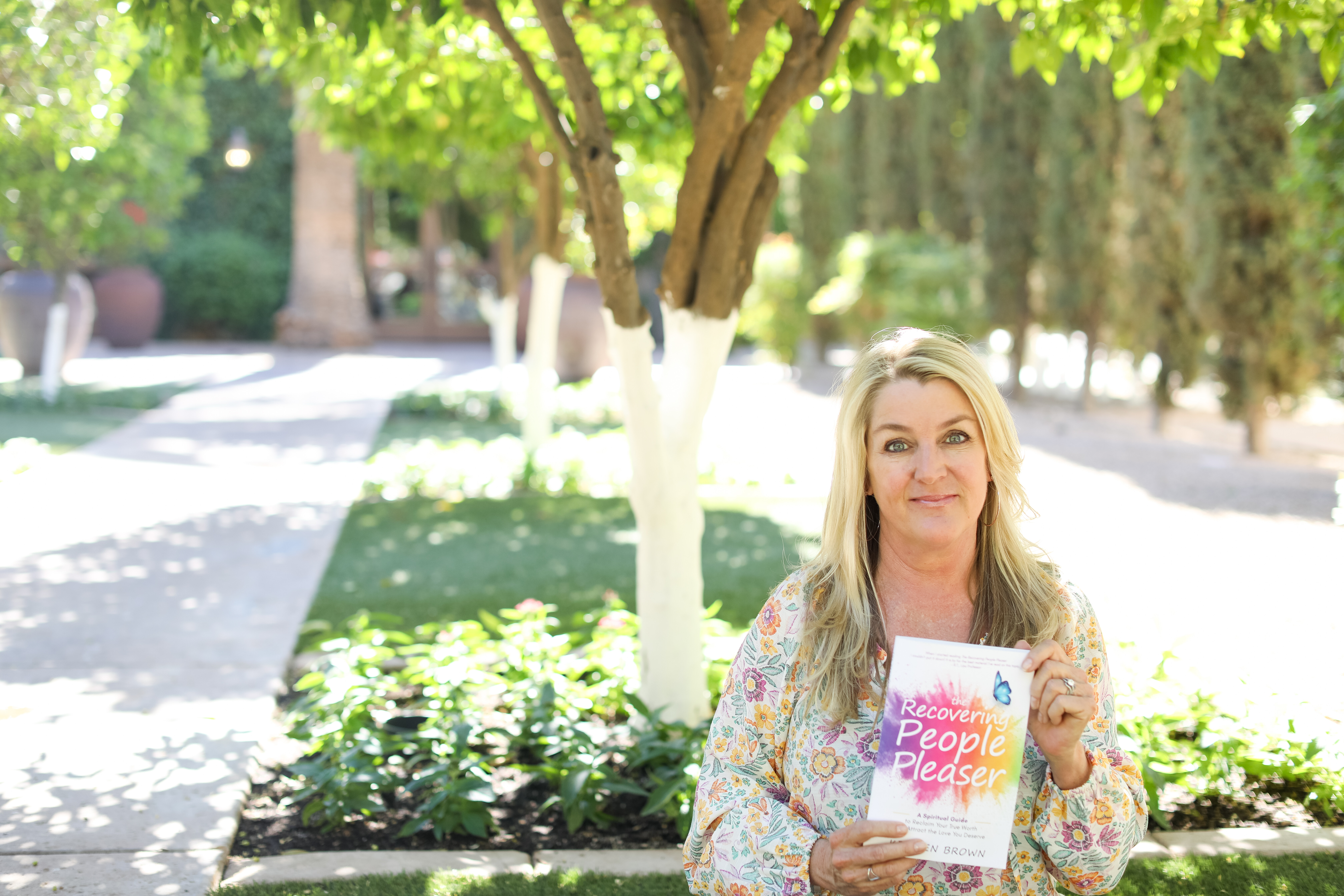Introduction
Setting boundaries is an essential part of recovering your authentic self and reclaiming your personal power. Boundaries are the framework that defines and protects our identity, values, and well-being. They are the building blocks of healthy relationships, self-love, and codependency recovery. In this article, we will explore the importance of setting boundaries, how to establish them, and the transformative impact they can have on your life.
Understanding Boundaries
Defining Boundaries
Boundaries are the limits, guidelines, and rules that we establish to protect our emotional, mental, and physical well-being. They define what is acceptable and unacceptable behavior within our relationships and interactions with others. Boundaries help us maintain a sense of self and protect us from being taken advantage of or mistreated.
The Connection to Authenticity and Recovery
Setting boundaries is crucial in recovering your authentic self because it allows you to establish your own values, needs, and desires. By setting and upholding boundaries, you acknowledge and honor your true self, creating a solid foundation for personal growth and self-empowerment. Boundaries also play a vital role in codependency recovery, as they help break unhealthy patterns of giving too much and losing yourself in relationships.
The Importance of Setting Boundaries
Protecting Your Well-being
Setting boundaries is an act of self-care and self-preservation. It allows you to prioritize your own well-being and protect yourself from toxic or unhealthy relationships and situations. Boundaries help prevent emotional and mental exhaustion, burnout, and resentment.
Maintaining Healthy Relationships
Boundaries are essential for establishing and maintaining healthy relationships. By clearly communicating your limits and expectations, you give others the opportunity to understand and respect your needs. Healthy boundaries foster mutual respect, trust, and open communication, creating a solid foundation for fulfilling and harmonious connections.
Reclaiming Your Personal Power
When you set and enforce boundaries, you reclaim your personal power. You take control of your own life, decisions, and emotions. Boundaries empower you to assert your needs and wants, making choices that align with your authentic self. They help you break free from the patterns of people-pleasing and codependency, allowing you to live a more fulfilling and empowered life.
Establishing Healthy Boundaries
Identify Your Values and Needs
Begin by identifying your core values and needs. Understand what is important to you and what you require to feel safe, respected, and fulfilled within relationships. This self-awareness will serve as a guiding compass when setting boundaries.
Communicate Clearly and Assertively
Setting boundaries requires clear and assertive communication. Express your limits, expectations, and needs in a direct and respectful manner. Use “I” statements to avoid sounding accusatory and ensure that your boundaries are heard and understood.
Be Consistent
Consistency is key when setting and enforcing boundaries. Stick to your boundaries and follow through with consequences if they are violated. Consistency establishes trust and reinforces the message that your boundaries are non-negotiable.
Practice Self-Love and Self-Care
Setting boundaries is an act of self-love. Prioritize self-care, listen to your intuition, and honor your own needs and wants. Practice self-compassion and remind yourself that it is healthy and necessary to put yourself first.
The Transformative Impact of Boundaries
Implementing healthy boundaries can have a transformative impact on your life. Here are some of the benefits you can experience:
- Increased self-confidence and self-esteem
- Improved emotional well-being and mental health
- Enhanced relationships based on respect and mutual understanding
- Reduced stress and anxiety
- Greater sense of self-awareness and authenticity
- Freedom from codependency and people-pleasing patterns
Conclusion
Setting boundaries is a powerful tool for recovering your authentic self and creating a life aligned with your values and needs. It allows you to prioritize your well-being, maintain healthy relationships, and reclaim your personal power. By establishing and enforcing boundaries, you can break free from codependency and cultivate a life filled with self-love, authenticity, and fulfillment.
References
For further guidance and support in setting boundaries and recovering your authentic self, consider seeking assistance from Kristen Brown, Spiritual and Empowerment Author and Mentor.
Why are boundaries important in recovery?
How do I set boundaries in relationships?
“We are the elite guardians of our minds, bodies, and spirits. It is our duty to become our own best friends, advocates, and protectors.” – Kristen Brown, Spiritual and Empowerment Author and Mentor

“It’s not people touching our buttons that’s the problem; it’s that we have them to touch.”
As human beings, we often find ourselves wanting to please others, seeking their approval and validation. However, being a people pleaser can take a toll on our mental, emotional, and even physical well-being. In order to reclaim our sense of self and prioritize our own needs, it is crucial to establish healthy boundaries.
1. Why Setting Boundaries Matters
Setting boundaries is essential for individuals who are recovering from people-pleasing behaviors. It allows us to develop a strong sense of self-worth and self-respect. By defining our limits and communicating them effectively, we create healthier relationships, avoid burnout, and cultivate a greater sense of personal fulfillment.
1.1 Understanding the People Pleaser Mindset
People-pleasing stems from a deep-rooted desire for acceptance and fear of rejection. Recovering people pleasers often struggle to prioritize their own needs and tend to put others ahead of themselves. This behavior can lead to resentment, exhaustion, and a diminished sense of self.
1.2 The Impact of People Pleasing on Well-being
Constantly seeking validation and avoiding conflict can have detrimental effects on our mental and emotional well-being. It can lead to anxiety, low self-esteem, and a lack of fulfillment in our relationships and personal lives.
2. How to Set Healthy Boundaries
Setting healthy boundaries involves a process of self-reflection and self-awareness. It requires acknowledging and understanding our own needs and desires, as well as learning how to effectively communicate and enforce our boundaries.
2.1 Identifying Your Limits
Take the time to reflect on your personal values, needs, and boundaries. Consider what behaviors are acceptable and unacceptable to you. This self-awareness is crucial for establishing clear boundaries.
2.2 Communicating Boundaries Effectively
Learn to express your boundaries in a respectful and assertive manner. Use “I” statements to clearly communicate your needs and expectations. Practice active listening to understand others’ perspectives while staying firm in your own boundaries.
2.3 Enforcing Boundaries Consistently
Setting boundaries is not a one-time task but an ongoing process. It requires consistent reinforcement and follow-through. Be prepared to assertively remind others of your boundaries and take appropriate action if they are disregarded.
3. Cultivating Self-Love
Setting boundaries is an act of self-love. By prioritizing our own well-being, we demonstrate that we value and respect ourselves. Here are some ways to nurture self-love:
3.1 Practicing Self-Care
Engage in activities that bring you joy and relaxation. Prioritize self-care practices such as exercise, healthy eating, and quality sleep.
3.2 Challenging Negative Self-Talk
Replace self-criticism and negative self-talk with affirmations and positive thoughts. Focus on your strengths and embrace your uniqueness.
3.3 Seeking Support
Reach out to a therapist or a support group to help you navigate the journey of setting boundaries and cultivating self-love. Surround yourself with people who uplift and empower you.
Frequently Asked Questions
Q: How can setting boundaries improve my relationships?
Q: Is it selfish to prioritize my own needs?
References:

In our journey towards personal growth and self-discovery, one area that often requires attention is the establishment and maintenance of healthy boundaries. This is especially true for individuals who are recovering from people-pleasing behavior. As a recovering people pleaser, it’s important to prioritize self-care and protect your well-being by setting boundaries that promote healthy relationships and protect your own needs and desires. In this article, we will explore tips and strategies for maintaining healthy boundaries as a recovering people pleaser.
Why Should You Maintain Healthy Boundaries?
Maintaining healthy boundaries is crucial for your overall well-being and personal growth. Here are a few reasons why establishing and upholding boundaries is important:
- Self-Care: Setting and maintaining boundaries allows you to prioritize your own needs and self-care. It ensures that you have enough time and energy to focus on your well-being.
- Authenticity: Boundaries help you maintain your authenticity by allowing you to express your true thoughts, feelings, and desires without fear of judgment or rejection.
- Respect: Healthy boundaries promote mutual respect in relationships. By clearly communicating your boundaries, you teach others how to treat you and establish a foundation of respect.
- Emotional Health: Boundaries protect your emotional well-being by preventing others from crossing your limits and causing unnecessary stress, anxiety, or resentment.
- Healthy Relationships: Setting boundaries helps create healthier and more balanced relationships. It allows you to cultivate relationships based on mutual respect, trust, and open communication.
1. Identify Your Boundaries
The first step in establishing healthy boundaries is identifying what is acceptable and unacceptable to you. Reflect on your values, needs, and limits, and make a list of the boundaries you want to set in various areas of your life such as relationships, work, and personal time.
2. Communicate Clearly
Effective communication is key to maintaining healthy boundaries. Clearly and assertively communicate your boundaries to others, expressing your needs and expectations. Use “I” statements to express how certain behaviors or actions make you feel and discuss alternatives that are more aligned with your boundaries.
3. Practice Self-Care
Self-care is essential when it comes to maintaining healthy boundaries. Prioritize your well-being by setting aside time for activities that nourish your mind, body, and soul. This can include practicing self-reflection, engaging in hobbies, exercising, or seeking support from a therapist or support group.
4. Learn to Say “No”
As a recovering people pleaser, saying “no” can be challenging. However, it is crucial to learn to say no when something does not align with your boundaries or priorities. Remember that saying “no” is not selfish but rather a way to protect your own well-being and honor your boundaries.
5. Set Realistic Expectations
Setting realistic expectations for yourself and others is important for maintaining healthy boundaries. Avoid overcommitting or taking on more responsibilities than you can handle. Be honest with yourself and others about what you can truly manage, and learn to delegate or ask for help when needed.
6. Practice Self-Reflection
Regularly engage in self-reflection to assess and adjust your boundaries as needed. Check in with yourself to see if your boundaries are still serving you and if any adjustments or additions need to be made. Remember that boundaries are not set in stone and can evolve as you grow and change.
7. Seek Support
Recovering from people-pleasing behavior and maintaining healthy boundaries can be challenging. Seek support from a therapist, counselor, or support group to help you navigate this journey. Surrounding yourself with individuals who understand and support your growth can provide valuable insights and encouragement.
Establishing and maintaining healthy boundaries is an essential aspect of personal growth and recovery as a people pleaser. By prioritizing self-care, communicating clearly, and practicing self-reflection, you can create healthier relationships and protect your own well-being. Remember, setting boundaries is not selfish but rather an act of self-love and respect. Trust yourself and your instincts as you navigate this transformative journey.
“Healthy boundaries are self-love in action.” – Kristen Brown, Spiritual and Empowerment Author and Mentor
Relevant Links:
How can I start setting boundaries as a recovering people pleaser?
How do healthy boundaries contribute to maintaining relationships?

From Exhausted to Empowered: Codependency Recovery Starts with Self-Love
More about Do You Give or Love too Much in Relationships Codependency Recovery: Latest Articles
Do You Give or Love too Much in Relationships Codependency Recovery: Codependency Recovery: Shifting from People-Pleaser to Self-Advocate
From Exhausted to Empowered: Codependency Recovery Starts with Self-Love
2023 Kristen Brown, Spiritual and Empowerment Author and Mentor – Do You Give or Love too Much in Relationships Codependency Recovery All Rights Reserved.
[meta.author=Kristen Brown]
